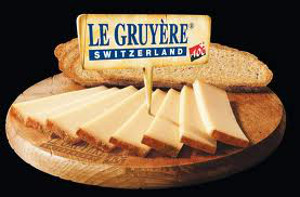 ese AG’s headquarters in Switzerland, the phone barely stops ringing these days. A Russian voice is usually at the other end.
ese AG’s headquarters in Switzerland, the phone barely stops ringing these days. A Russian voice is usually at the other end.Since 7 August, when Vladimir Putin’s government banned many food imports from nations supporting sanctions due to the country’s role in the Ukraine crisis, at least 14 Russian importers have contacted Intercheese. The reason for the surge in business: Switzerland hasn’t joined the European Union, the US, Canada, Australia and Norway in penalising Russia.
“Russian importers are looking for the cheeses they can’t get from the Europeans anymore -- Mozzarella, Gouda and Edam,” said Daniel Daetwyler, managing director at closely held Intercheese. The Beromuenster-based company sold as much as 20 tons of cheese to Russia in 2013 and will increase sales to the country of the varieties most affected by the EU embargo, even though it won’t be able to meet the demand, Daetwyler said.
Cheese is Switzerland’s most important agricultural export and the country’s neutrality is providing local producers with an edge in selling Gruyere and Emmental to 142.5 million Russians. Swiss producers shipped 431 metric tons of cheese to Russia last year, according to the Swiss Customs Administration, just a fraction of the almost 63,000 tons exported globally.
Russian Imports
“If the embargo remains, it’s possible we’ll export more cheese to Russia,” Jacques Bourgeois, director of the Swiss Farmer’s Union, said by phone, adding that Gruyere is among the Swiss cheeses with most potential as exports have increased in recent years. “But Switzerland is a small country, we can’t just double production from one day to another. If there’s more demand, of course we’ll have to see that we can deliver. We’ll be pleased about every additional kilo we can export.”
Russia imported $25 billion of products on the banned list last year, $9.5 billion of which came from nations now blacklisted, according to Capital Economics Ltd. estimates.
Border guards in Russia and Belarus turned back trucks loaded with cheese, yogurt and meat, officials from Lithuania and Estonia said last week. The euro area exported more than 292,000 tons of dairy products to Russia last year, with the Netherlands providing almost a quarter, followed by Germany and France, according to Eurostat.
“The food-import ban has a rather limited effect on growth in the eurozone,” Peter Vanden Houte, chief euro-area economist at ING Groep NV in Brussels, said by phone. “For some areas in the sector, oversupply could cause prices to drop.”
Emmental, Gruyere
According to Vanden Houte, there may be “some shifts towards Switzerland and it may profit from higher Russian demand as a substitute for European products -- but I doubt it’d be able to strongly increase production to meet the demand.”
Emmental needs 120 days to ripen, while Gruyere takes six to nine months to mature. Forty-three percent of Swiss milk was used to produce cheese in 2013, according to industry data.
“Swiss businesses are going to profit from the embargo,” David Escher, director of Swiss Cheese Marketing AG, said in a phone interview. “If there is a new market and there is new demand, it could be interesting for Switzerland, which clearly has an advantage as it can continue to export. It will take some time to estimate to which extent.”
Swiss dairy producer Emmi AG (EMMN) said its conducting business as usual for now, while declining to comment on how much it exports to Russia before reporting results on 27 August.
“Russia has an interesting consumer layer to offer Emmi that has a high affinity for premium food, like for example Swiss cheese,” said spokeswoman Sibylle Umiker.







